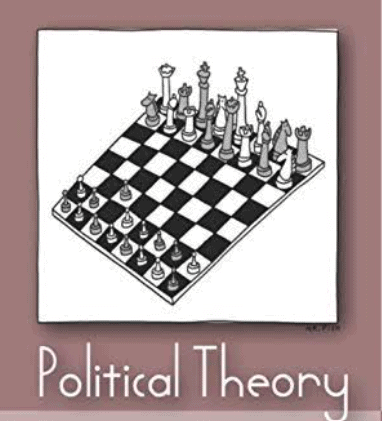NCERT Solutions for Class 11 Political Science - Political Theory: An Introduction
Q1: Which of the following statements are true/false about Political theory?
(a) It discusses ideas that form the basis of political institutions.
(b) It explains the relationship between different religions.
(c) It explains the meanings of concepts like equality and freedom.
(d) It predicts the performance of political parties.
Ans:
(a) True
Political theory deals with ideas like democracy, justice, rights, and liberty, which form the foundation of political institutions.
(b) False
This is the domain of sociology of religion or comparative religion, not political theory.
(c) True
Political theory critically analyses key political concepts, including equality, liberty, justice, etc.
(d) False
Predicting political party performance is part of political science research, often under political analysis or electoral studies, not political theory.

Q2: Politics is more than what politicians do. Do you agree with this statement? Give examples.
Ans:
It is correct that politics is more than what politicians do. Politicians, as a part of government, are involved in politics, but politics is not limited to their activities. Politics involves a number of negotiations that go on in society through which collective decisions are made.
- Politics involves the actions of government and its relation to the aspirations of the people.
- Politics involves the struggle of people and their influence on decision-making.
- People are engaged in political activity whenever they negotiate with each other and participate in collective activities that are designed to promote social development and resolve common problems.
- For example, residents of localities form associations to solve their common problems and raise these issues at a higher level.
- Students form unions in colleges and universities to debate and resolve issues that affect the majority of them.
- Thus, politics is involved in the sphere of life that is related to power, collective decision-making, and solving common problems.
 Politics is more than what politicians do
Politics is more than what politicians do
Q3: Vigilant citizens are a must for the successful working of a democracy. Comment.
Ans:
- Vigilant people are a must for the successful working of democracy as vigilance creates awareness about the rights of citizens and government policies that affect daily life.
- Awareness leads to discussion and debate on the issues that arise out of the implementation of policies.
- Citizens can, thus, force the government to implement new policies or modify the existing policies and programmes of the country by building up and mobilising their opinion.
- As democracy is about the government of the citizens, by the citizens, and for the citizens, the vigilance of the citizens accelerates the successful working of a democracy.
Q4: In what ways is the study of political theory useful for us? Identify four ways in which the political theory can be useful to us.
Ans:
The study of political theory is useful to us in several ways. It helps us understand, analyse, and improve the functioning of politics and society. The usefulness can be identified in the following ways:
1. As a Science (David Easton):
- Provides an analytical framework to make political research meaningful.
- Enables comparative studies to verify conclusions and identify areas needing more empirical research.
- Ensures consistent and reliable concepts for studying political phenomena.
2. As a Social and Practical Guide (Wright and Mills):
- Serves as an ideology of justified practices to critique political systems and guide policy-making.
- Prepares goals and guidelines for political action and social aspirations.
- Helps design strategies and programmes to achieve political and social objectives.
- Assists in understanding societal conflicts and finding solutions.
Conclusion: Political theory is a combination of systematic analysis and practical guidance, helping us study political data, critique governance, and work toward a better political world.
Q5: Do you think that a good/ convincing argument can compel others to listen to you?
Ans:
Yes, a good argument can compel others to listen because:
- Rational interest: Rational people are naturally inclined to engage in debates or discussions to reach better conclusions.
- Logical appeal: Logical and well-reasoned points impress individuals and make them more likely to agree or consider your perspective.
- Careful attention: If presented positively and convincingly, others listen attentively.
- Clarification and understanding: Discussions allow people to clear their doubts and become convinced by sound reasoning.
Conclusion: A well-structured and logical argument can effectively attract attention and persuade others.
Q6: Do you think studying political theory is like studying mathematics? Give reasons for your answer.
Ans:
No, studying political theory is not like studying mathematics because:
- Mathematics: Deals with precise definitions, fixed rules, and universally applicable formulas.
- Political theory: Deals with human needs, aspirations, and political realities, which vary across societies, cultures, and historical contexts.
- Subjectivity: Political theory often involves debates, differing opinions, and interpretations to develop harmony and justice in society.
Conclusion: Unlike mathematics, political theory is flexible, interpretive, and context-dependent, focusing on understanding and improving human society.
|
151 videos|780 docs|202 tests
|
FAQs on NCERT Solutions for Class 11 Political Science - Political Theory: An Introduction
| 1. What is the importance of studying Political Theory? |  |
| 2. What are the main branches of Political Theory? |  |
| 3. How does Political Theory differ from Political Science? |  |
| 4. What are some key concepts in Political Theory? |  |
| 5. How does Political Theory influence public policy and governance? |  |

















